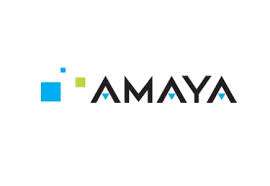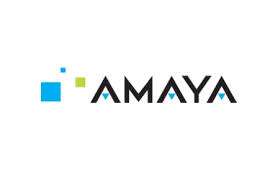Amaya Gaming Withdraws PokerStars, Full Tilt Brands from Grey Markets
Canada-based Amaya Gaming has announced the withdrawal of world online poker market leader PokerStars and secondary brand Full Tilt Gaming from approximately 30 so-called “grey market” jurisdictions, countries where online poker or online gambling is either unregulated by law or is explicitly banned in some form. The lengthy list of countries includes a high percentage of Arab / Islamic states, where gambling is often banned by law.
 Amaya has yet to release an official list of newly banned jurisdictions, but a consensus list culled from customer-support messages to affected players, plus independent postings on player forums, has resulted in the following list:
Amaya has yet to release an official list of newly banned jurisdictions, but a consensus list culled from customer-support messages to affected players, plus independent postings on player forums, has resulted in the following list:
- Afghanistan
- Bahrain
- Bangladesh
- Cuba
- Egypt
- Holy See / Vatican City
- Iran
- Iraq
- Libya
- Jordan
- Kenya
- Kuwait
- Malaysia
- Mozambique
- Myanmar
- Nigeria
- North Korea
- Northern Cyprus (Turkish jurisdictional area)
- Occupied Palestinian Territory (Gaza Strip)
- Pakistan
- Qatar
- Rwanda
- Saudi Arabia
- Senegal
- Sudan
- Syria
- Tanzania
- Turkey
- United Arab Emirates
- Yemen
- Zimbabwe
All of the named countries are expected to be added in the near future to the list of “Prohibited Jurisdictions” published in the Terms of Service (TOS) of both the PokerStars and Full Tilt sites. Previously, the only prohibited jurisdiction was the United States, along with that country’s territorial possessions. The two Amaya Gaming sites, PokerStars in particular, also maintain a separate list of “Restricted Jurisdictions” where play is accessible for that country’s firewalled players only through a state-licensed client. Those countries — Italy, Estonia, Belgium, Denmark, and Spain — have an unchanged status in relation to the latest news.
FlushDraw has received a statement from Eric Hollreiser, the Head of Corporate Communications for PokerStars, which confirms the pullout and reads as follows:
“Our management team and advisors regularly review our operations market-by-market to assess commercial opportunities and business risks for our brands. Following a recent review we have decided to stop offering real money games to players who are physically located in, or have a registered address in, a limited number of countries.
“We appreciate that many of our customers are passionate about using our services, and we regret the inconvenience that this will cause affected players. Affected players can log into the relevant software and cash out their remaining balance using the ordinary withdrawal methods available to them, and they are welcome to do this at their convenience.”
Poker-discussion boards and social media dedicated to online poker sites were soon filled with news of the pullout, with “Black Tuesday” claims by some affected players echoing the “Black Friday” tag that soon became synonymous with the forced exit of PokerStars and other sites from the United States on 2011.
PokerStars and Full Tilt also announced that players from the blocked jurisdictions would still be able to log in and cash out their online balances, despite no longer being allowed to participate in real-money play.
A possible legal return to the newly regulated United States market is among the most likely reasons for the Stars move, according to the consensus opinions of poker-industry experts posting on social media. PokerStars’ application for approval in New Jersey continues to receive regulatory scrutiny after being reactivated following the sale of PokerStars and FTP parent Rational Group to Canada-based Amaya Gaming.
New United Kingdom online-gambling regulations requiring licensed operators to not also offer services in unregulated or illegal jurisdictions may also be a contributing factor, though the UK’s new Gambling Act rules also include a percentage threshold related to overall business revenue that likely wouldn’t apply to most of the countries that are newly blocked, with the thinly possible exception of Turkey.
A third line of industry gossip connected with Amaya’s withdrawal of the two brands from the gray-market jurisdictions concerns the possibility of whether a similar move might be in the works for other countries where online poker’s legality is uncertain. Those countries include Russia — which changes its own rules and definitions on the topic every year or two — and Canada, where one or more provinces may institute a gambling ban and which would have special impact, being Amaya’s country of operations.
Amaya’s own recent acquisition of PokerStars in a $4.9 billion deal brought along an immense debt load that likely contributed to overriding regulatory concerns. Pleasing current and would-be regulators (the UK and the US, respectively) and either gaining access to or continuing to service players in those major markets likely far outweighs the corporate financial risk inherent in continuing to serve the grey-market countries.
PokerStars remains the dominant global market leader in online poker, and even after the loss of the named countries will continue to serve several times as many players as any of its closest competitors.




















Hi,
I am from Iran in one of the banned countries mentioned above. Pokerstars is not letting me to Cash out despite the fact they have to allow withdraw even for banned countries.
I had communicated to them for more than 3 months, always they are promising to resolve issue and cash out will be done shortly, but still they did not payed.
Anybody else have similar problem ? Anybody have an idea how to claim money from Pokerstars?
Thanks for your Help